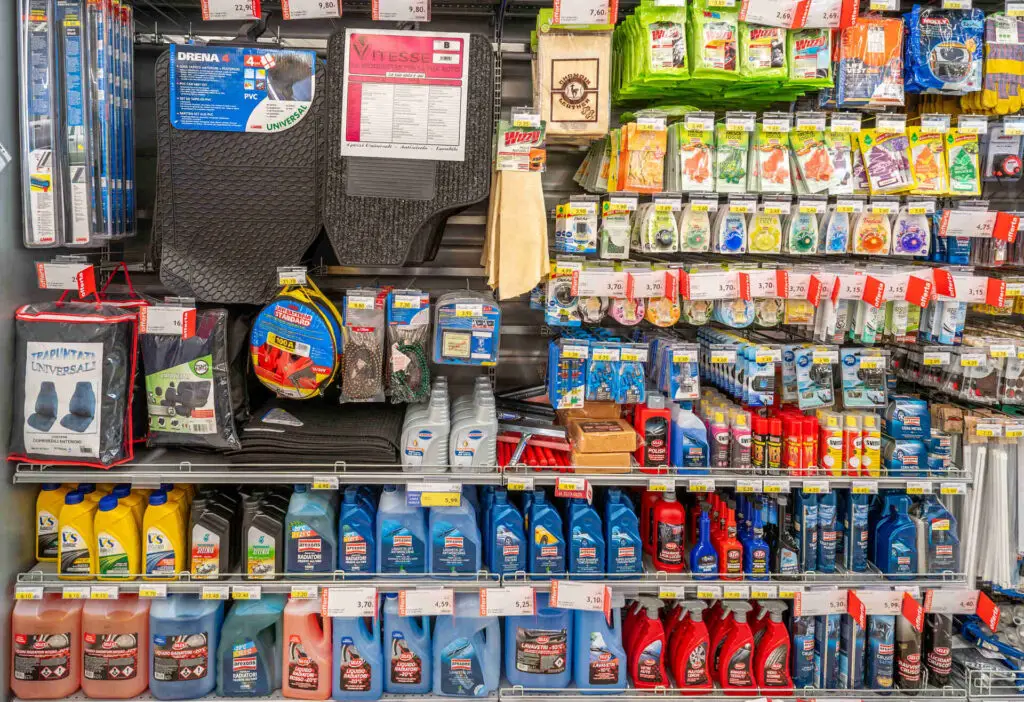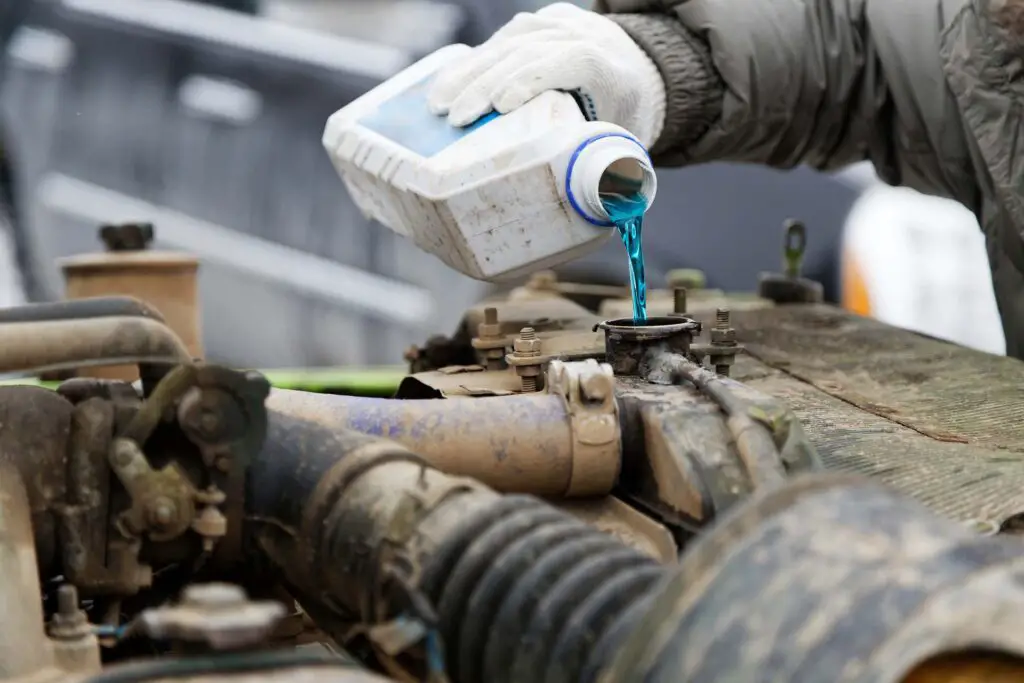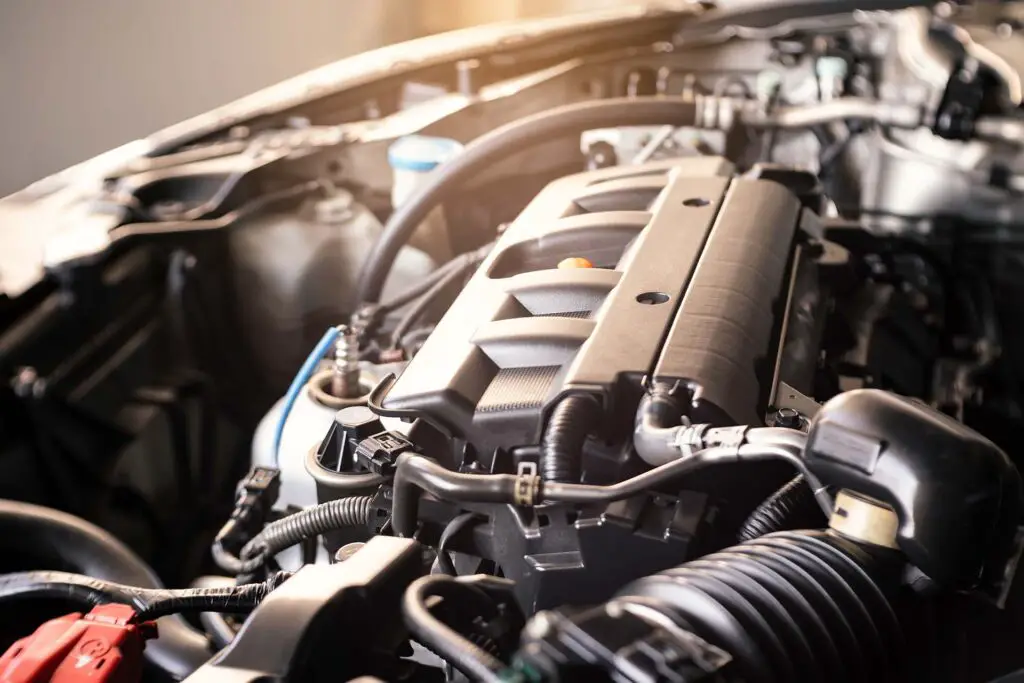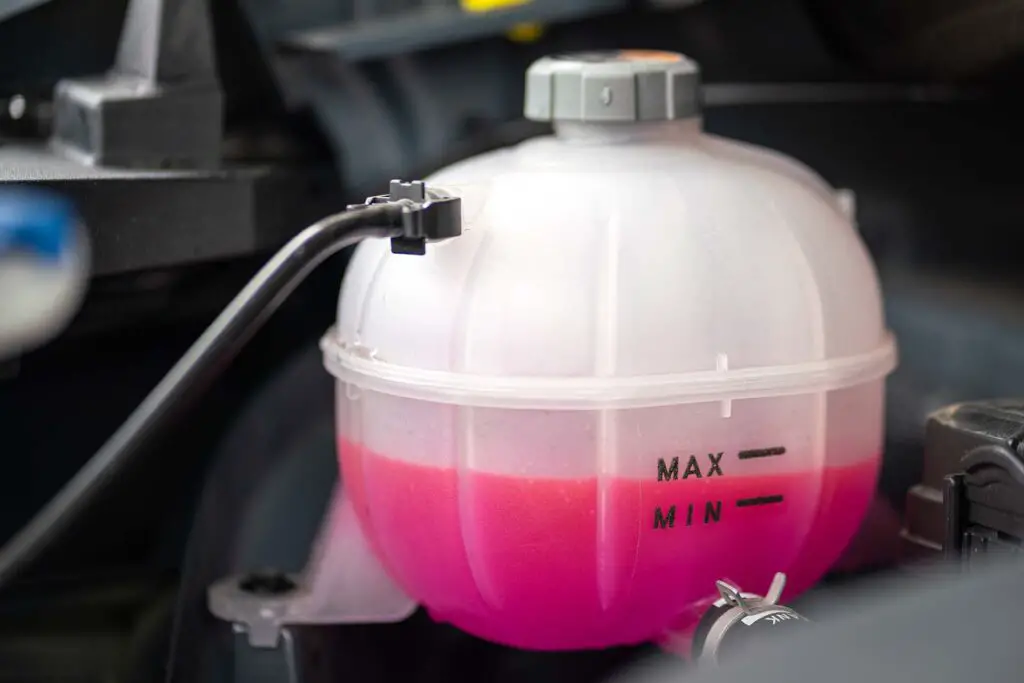Have you ever been staring at the label of this bright green liquid and wondered – what does antifreeze do for a car? Most of us know that this solution plays a vital role but aren’t familiar with its exact purpose in keeping your four-wheeler running smoothly. So, let’s dig deeper into what goes on behind the scenes, looking at how this additive works to keep your ride functioning in all different types of temperatures.
Antifreeze coolant for a car has the primary role of maintaining the optimal temperature of an engine, as it’s specifically designed to prevent freezing and boiling, providing efficient heat transfer. Moreover, this vital vehicle additive helps protect the engine against corrosion and lubricate the cooling system. Proper usage and regular maintenance are crucial for keeping your four-wheeler working optimally.
What Is Antifreeze?
You’ve probably wondered before – does my car need antifreeze? And the answer is – absolutely, and not just during the winter, but all day long. Used vehicles, brand-new four-wheelers, electric vehicles, and even cars with a salvage title – no matter what you’re driving through the famous routes in the US, it most likely requires regular antifreeze changes.
Antifreeze, which is known as a coolant when diluted and added to the cooling system, is a liquid substance used in various engines and cooling systems to prevent freezing and overheating, allowing the engine to operate within a safe temperature range.
What Are the Different Types of Antifreeze?
There are two primary types of coolant commonly used – propylene glycol-based and ethylene glycol-based. Ethylene glycol-based antifreeze is the most common type and is typically used in automotive applications, but it’s toxic and requires careful handling and disposal.
Propylene glycol-based antifreeze, on the other hand, is less toxic and more environmentally friendly. It is often used in applications where human or pet exposure is a concern, such as in family cars, RVs, boats, and certain industrial systems.

What Does Antifreeze Do for a Car? What Is Its Role in the Heat Transfer and the Coolant System
Before we explain what this liquid does for a car, we need to understand how the engine works. As the engine runs, it generates a significant amount of heat through the combustion of fuel, so it’s vital to maintain optimal operating temperatures. To ensure this, there are three primary heat transfer mechanisms in every engine:
- Conduction – refers to the transfer of heat through direct contact between solid surfaces, meaning the heated surfaces of the metal engine block, cylinder walls, and cylinder head transfer the heat to the engine coolant flowing through passages,
- Convection – as the heated coolant circulates through a network of channels and the radiator, air passing over the radiator’s fins facilitates heat exchange, causing the coolant to release heat and cool down,
- Radiation – occurs as the hot engine components emit thermal radiation, which can be absorbed by nearby surfaces or released into the atmosphere.
The Coolant System Plays a Vital Role in Maintaining Optimal Performance
The coolant system is a crucial component of any modern vehicle, and it consists of several key parts working together to manage heat transfer:
| Component | Role |
| Radiator | Dissipates heat from the coolant through air convection |
| Coolant Pump | Circulates the coolant throughout the engine and radiator |
| Thermostat | Regulates antifreeze flow based on engine temperature |
| Hoses/Pipes | Connects various components, facilitating coolant flow |
| Coolant | Transfers heat, prevents freezing, and protects against corrosion |
| Radiator Fan | Enhances air convection over the radiator |
| Expansion Tank/Reservoir | Provides storage and expansion space for coolant |
| Heated Core | Transfers heat to the cabin for heating purposes |
| Water Pump | Circulates coolant and aids in cooling system operation |
| Pressure Cap | Maintains system pressure and regulates coolant boiling point |
As you can see, antifreeze, as a coolant, plays a critical role in managing the temperature of an engine, but that’s not the only answer to the question – what does antifreeze do for your car? Actually, this liquid also has several other functions to protect the car’s engine. That’s why ensuring proper concentration and regularly adding coolant to your four-wheeler is essential for promoting the overall longevity and reliability of the engine.

Freeze and Boil Protection Are Its Main Functions
The name antifreeze suggests that this additive prevents freezing in the colder months, but it actually manages engine temperature in various weather conditions. So, no matter if you have summer or winter tires on, coolant will provide protection against both freezing and boiling, supporting optimal performance and preventing potential engine damage that could result in costly repairs.
How Antifreeze Prevents Freezing
When mixed with water in the appropriate ratio, this additive forms a solution that can withstand much lower temperatures than plain water alone. This lowers the risk of the coolant freezing and forming ice crystals, which could potentially expand and cause damage to the engine components, such as the radiator, hoses, or even the engine block itself.
How Antifreeze Prevents Boiling
When the engine operates under demanding conditions, such as off-road driving or in extremely high temperatures, the coolant absorbs a significant amount of heat. Antifreeze has an elevated boiling point, so it allows coolant to withstand higher temperatures without evaporating and forming vapor bubbles, which can lead to overheating. This, in turn, safeguards the engine’s components from potential damage caused by overheating.

Corrosion Prevention Is Another Important Function
Unlike antifreeze, water does not possess corrosion-inhibiting properties, and it can promote the development of rust, scale, and corrosion if there are excessive amounts of it within the engine. These corrosive elements can build up on surfaces such as the radiator, water pump, cylinder heads, and even the engine block.
Over time, this corrosion can impair the efficiency of the cooling system, restrict coolant flow, and lead to overheating issues. Moreover, corroded components may suffer structural damage, leaks, or failure, affecting the engine’s overall performance and longevity. Therefore, if you don’t want your car expenses to go through the roof anytime soon, using a proper coolant mixture is crucial.
How Antifreeze Helps Prevent Corrosion and Extends the Lifespan of the Engine
This solution contains corrosion inhibitors and additives that create a protective barrier on the internal surfaces of the engine’s cooling system, and these components help prevent the formation of rust, scale, and other corrosive deposits that can accumulate over time.

It Provides Lubrication and Seal Protection
Aside from regulating the temperature and creating a protective layer against corrosion, antifreeze also possesses certain lubricating properties that contribute to the smooth operation of the engine’s cooling system. When this liquid circulates through the cooling system, it helps reduce friction between moving components, such as the water pump impeller and seals.
This minimizes wear and tear, preventing premature damage and ensuring the longevity of these vital parts. Furthermore, it contributes to improved overall system efficiency by reducing energy consumption. It might not be as effective as a dedicated lubricant, but coolant still plays a vital role in keeping your ride nice and smooth.
How Antifreeze Helps Protect Seals and Gaskets in the Engine
Seals and gaskets are used throughout the cooling system to prevent leaks and maintain the integrity of this system. Antifreeze contains additives that help protect these vital components, keeping the seals pliable and flexible, preventing them from drying out, cracking, or becoming brittle over time.

Antifreeze Dilution and Maintenance Guide
Regular maintenance should be considered the number one driver’s responsibility, as it helps ensure the safety of both you and other drivers on the road. With the cost of owning a car being so high these days, regularly checking your four-wheeler and all of its crucial components can help you avoid costly repairs and actually cut down car expenses in the long run.
Here are the most important maintenance routines you need to incorporate to keep your coolant system functioning properly:
Correct Antifreeze-To-Water Ratio
The recommended antifreeze-to-water ratio typically varies depending on the climate and specific vehicle requirements. Insufficient coolant concentration can lead to freezing or boiling, while excessive antifreeze can reduce the coolant’s ability to dissipate heat.
To determine the appropriate ratio for your specific four-wheeler and climate conditions, it’s best to consult the vehicle owner’s manual or seek professional advice. Once you know it, make sure to regularly check and maintain the correct ratio to ensure the cooling system’s reliability and longevity.
Checking and Topping Antifreeze Levels
To check the antifreeze level, make sure the engine is cool and locate the coolant reservoir, typically labeled with “Max” and “Min” markings. Remove the cap and visually inspect the level, ensuring it’s within the recommended range.
If the level is low and you need to top it off, it’s crucial not to add antifreeze to a hot engine, as it can cause sudden boiling and result in burns. If you’re dealing with low levels consistently, it may indicate a leak or other underlying issues, in which case, professional inspection and repair are recommended.
Flushing the Antifreeze
Flushing is an important maintenance task, and it’s just what it sounds like – it involves removing the old coolant from the system and replacing it with a fresh additive. This is important because coolant can become contaminated with rust, scale, dirt, and other impurities over time, and this can hinder its effectiveness and potentially cause damage to the cooling system.
This task involves draining the old coolant, flushing the system with a cleaning solution or plain water, and then refilling it with the appropriate mixture of antifreeze and water. If you’re not sure about the correct course of action, it’s best to follow the vehicle manufacturer’s guidelines and recommended intervals for flushing to keep the cooling system in optimal condition.
Understanding the Importance of Antifreeze Will Extend the Life of Your Car’s Engine
All in all, by keeping your coolant reservoir fuller, you can ensure a longer and healthier life for your trusted ride. Not only does it help protect against tragedies like freezing or overheating, but it also lubricates the cooling system components, reduces corrosion, and helps improve performance and efficiency. It’s a simple task that doesn’t require any major maintenance or know-how – so what’s stopping you from taking care of your car today?








